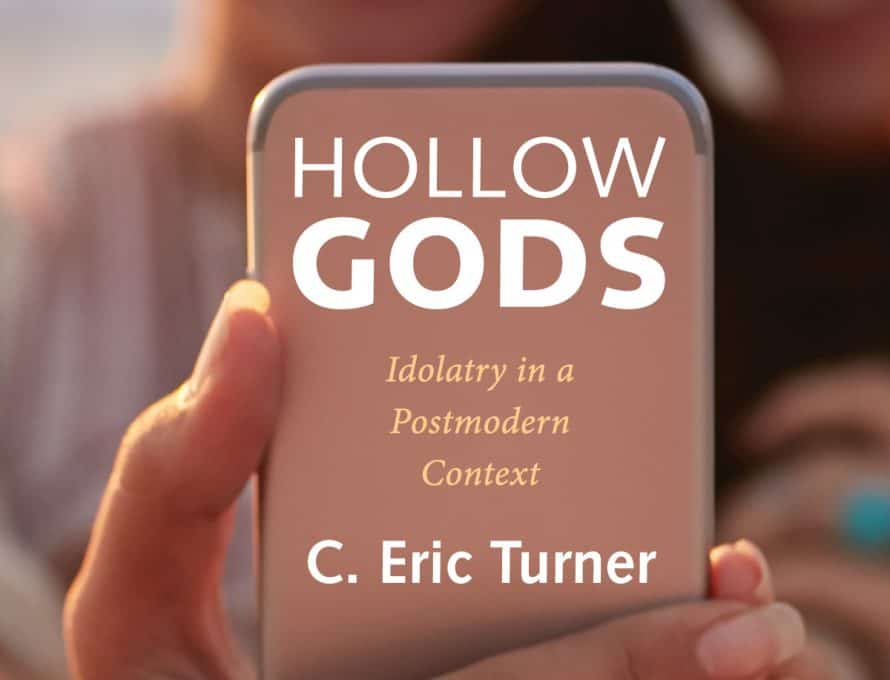HANNIBAL – There is little doubt that Western Culture is quick to follow after idols. Why are we so easily led astray? Eric Turner, assistant professor of New Testament and Greek at Hannibal-LaGrange University, suggests it is because postmodern thinking has masked idols so that we do not recognize them.
Turner’s first book, “Hollow Gods: Idolatry in a Postmodern Context,” offers a glimpse into the connections between postmodern culture and its rapid decline into idolatry, providing the biblical reasons and solutions to this problem for both Christian life and church health.
“Hollow Gods” is available for purchase at Amazon.com for $17.
What follows is a Q and A session with Turner.
Q: This is your first book. Where did the idea for Hollow Gods come from?
Turner: The genesis of the book unintentionally came about through the work I completed for my dissertation. My research focused on the letter of 2 Corinthians where Paul addresses the problem of idolatry. This first century problem prompted me to consider if we face similar issues in our modern context.
Q: Your book contains a lot of personal stories. Why do you feel these are important and relevant to your topic?
Turner: I believe that it is critical for the reader to make a personal connection with the author in order to earn the privilege of speaking into their life. I desired for the reader to understand that the issue (idolatry) I am writing about is something that I also struggle with as a Christian. Plus, since this is my first book, I wanted to provide a little window into my life experiences.
Q: So, why the topic of idolatry and postmodernism? Could you not have tackled a little easier subject for your first book?
Turner: It is true that idolatry and postmodernism are both complex and misunderstood subjects. However, I felt a burden to connect for the reader the trends within our postmodern culture and the biblical teachings on idolatry. I suspect that many Christians are quick to follow postmodern views that result in worship of invisible idols.
Q: The book contains many cultural references including The Office, Star Wars, social media, The Walking Dead, and even Cracker Barrel. What prompted you to include such a variety of cultural expressions?
Turner: My goal was, to use a biblical studies term, exegete (explain) the cultural trends we experience daily. Honestly, a significant number of Christians probably know more about Netflix than they do about Nahum. So, if I can make a connection with them through cultural expressions, hopefully I can help them see the importance of viewing postmodern culture through a biblical lens.
Q: Former Missouri pastor Micah Fries wrote the preface to the book. Can you introduce us to Micah and why you chose him as a contributor?
Turner: Micah has been a friend and colleague in ministry with me for many years. We met at Midwestern Baptist Theological Seminary in Kansas City. Micah has been a missionary in Africa, a denominational leader at Lifeway, and a pastor. Micah, better than anyone I know, has a firm grasp on understanding culture and addressing it biblically.
Q: Tell us a little more about yourself and your family?
Turner: I am married to my wife Stephanie; we have been together now for 22 years. Our four children are Cori, Chase, Carson, and Clare. The oldest, Cori, will graduate from Hannibal LaGrange University in May with an English degree. Our oldest son, Chase, is currently completing Marine boot camp in San Diego. Carson is in high school and Clare is our high energy 11 year old. Oh, we also have two cats, a dog, and a bearded dragon. I am serving as Assistant Professor of New Testament and Greek at Hannibal LaGrange. My wife teaches ESL online to preschool and elementary age students in China.
Q: Do you have plans for future books?
Turner: Yes, I am working on two projects. The first is the revision of my dissertation on linguistic metaphor for academic publication. The second is a book on the metaphors of suffering in 2 Corinthians. The former is up first and should be completed early this spring. I hope to finish the latter by the end of the summer.

